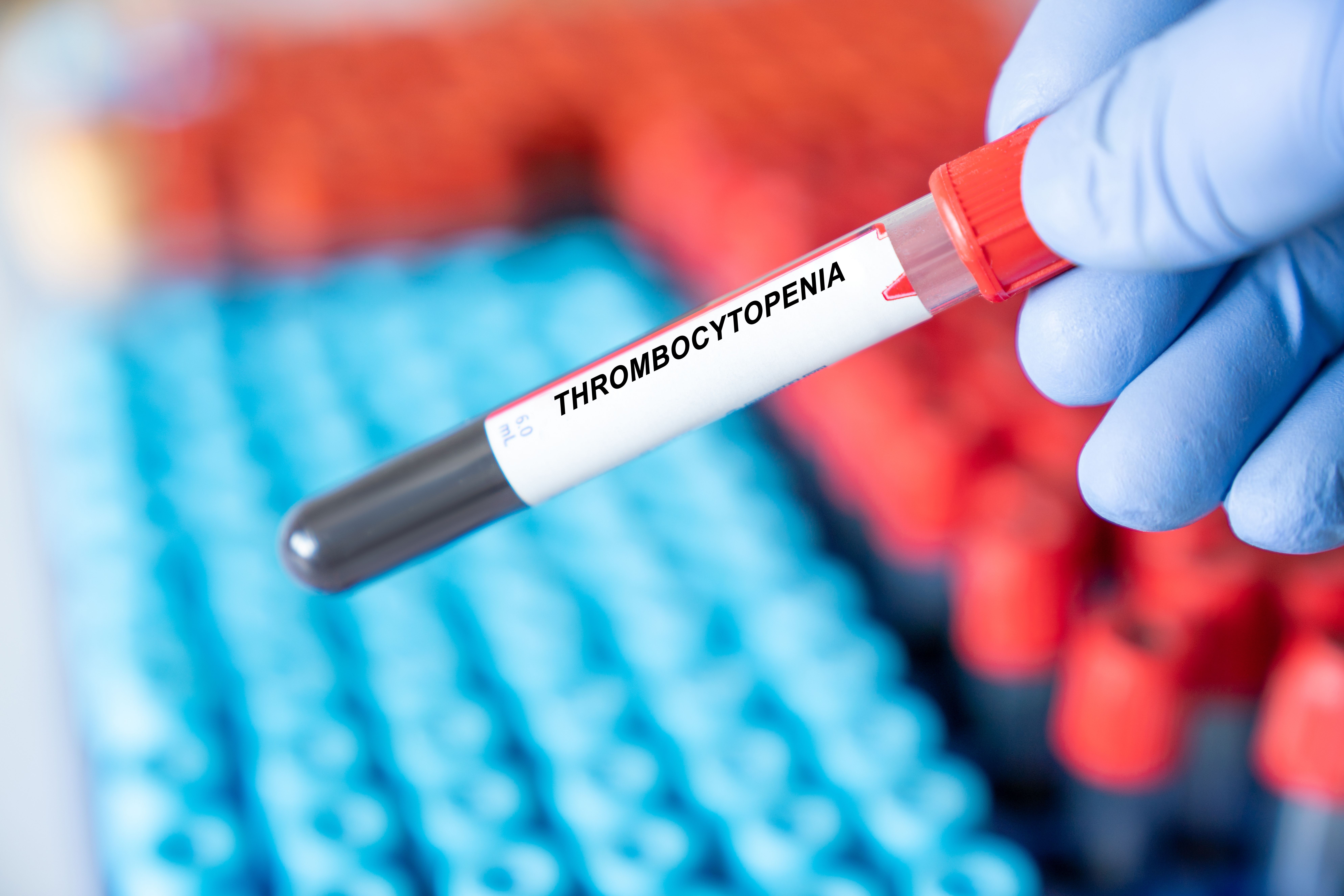- Bone Health
- Immunology
- Hematology
- Respiratory
- Dermatology
- Diabetes
- Gastroenterology
- Neurology
- Oncology
- Ophthalmology
- Rare Disease
- Rheumatology
Rituximab Biosimilars Effective in Treating Immune Thrombocytopenia
A French study found that rituximab biosimilars, Rixathon and Truxima, were as effective and safe as the reference drug (Rituxan) in treating immune thrombocytopenia.
Blood test | Image Credit: luchschenF - stock.adobe.com

Two rituximab biosimilars (Rixathon and Truxima) and the reference drug (Rituxan) exhibited similar safety and efficacy outcomes in patients with immune thrombocytopenia (ITP), an autoimmune disease followed by a low platelet count, according to a recent analysis.
Between January 2018 and December 2019, an observational, multicenter, retrospective and prospective study was conducted among several medical centers in France. Study participants included adults with ITP who were administered at least 1 rituximab biosimilar infusion.
The main study objective was to evaluate the safety and efficacy of rituximab biosimilars in comparison with the reference product. Diagnosis was determined by international guidelines to determine the bleeding severity of the patients, graded from 1 to 19, where anything greater than 8 was labeled severe. The study examined data from 10 centers. The authors also noted that the real-life study scenario is comforting to patients and doctors who use or suggest this off-label drug when relying on accurate data research.
Outcomes were divided into complete response (CR), with a platelet count greater than 100 × 109/L and partial response (PR), with a platelet count of 30 to 100 × 109/L with at least a doubling of the pretreatment count. The final or overall response (OR) was either labeled as CR or PR. Patients labeled as non-responders required another treatment, including a new rituximab routine, despite the platelet count.
Treatment efficacy was calculated using the initial response rates between rituximab-naïve biosimilar patients and matched controls. The 3-month post-transfusion response was the main outcome determining efficacy. A total of 49 patients with ITP were administered Rixathon and 49 patients with ITP were treated with Truxima. There were 38 patients in the Rixathon group and 43 patients in the Truxima group. Patients had paracetamol, corticosteroids, and antihistaminic treatments administered as pre-infusion.
OR was achieved in 27/38 (71%) patients in the Rixathon group and 22/42 (51.2%) patients in the Truxima cohort. Following the first infusion, the median platelet count for the Rixathon cohort was 89 × 109/L (range, 53.5-156.5) after the first 3 months. For the Truxima group, 82 × 109/L (range, 50.3-197) was the median platelet count after 3 months. Ten patients experienced relapse after an average of 7.5 months.
The efficacy of the rituximab biosimilars in the matched analysis were observed. After 3-months following infusion, the overall response rate (ORR) was 76/142 (53.5%) for those receiving the originator and 47/74 (63.5%) for the patients receiving a biosimilar. The ORR at the 3-month mark was 26/34 (76.5%) for the Rixathon cohort and 35/68 (51.5%) for the reference product group. The reference product cohort had a remaining response of 24/57 (42.1%), whereas the Rixathon group had a remaining response of 18/28 (64.3%). The ORR for the Truxima group at 3 months was 21/40 (52.5%) vs 41/74 (55.4%)for the reference product group. At 12 months, the ORR for the Truxima group was 15/32 (46.8%) vs the 27/68 (39.7%) for the control group.
Patients receiving the reference product had similar responses compared with those who received the biosimilar.
Three patients receiving Truxima reported delayed effects and nonspecific adverse events after treatment. However, none were labeled severe nor needed hospitalization.
The study was constrained by the absence of monitored B-cell depletion, which was not standard in France, thus, hindering comprehensive data. Additionally, the retrospective design and varied treatment timings among cohorts posed challenges to outcome completeness.
The study concluded, “The use of rituximab biosimilars for ITP treatment is a reliable option and offers hope for decreasing the cost of treatment for the challenged healthcare system.”
Reference
Mageau A, Bonnotte B, Ebbo M, et al. Efficacy and safety of two rituximab biosimilars for treating immune thrombocytopenia: a reference-product matched study. Platelets. 2023;34(1):2200848. doi:10.1080/09537104.2023.2200848
Newsletter
Where clinical, regulatory, and economic perspectives converge—sign up for Center for Biosimilars® emails to get expert insights on emerging treatment paradigms, biosimilar policy, and real-world outcomes that shape patient care.
